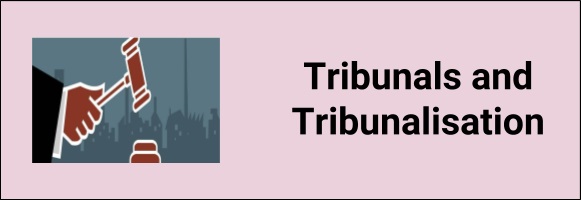
Tribunals and tribunalisation (Polity) : Important Topics for UPSC Exams
Tribunal is an administrative body established for the purpose of discharging quasi-judicial duties. Tribunals relieve the burden of judiciary and provide quick and speedy justice. It is to be noted that tribunals are not courts because courts follow the Courts are governed by strict procedure defined in CrPC, IPC and the Indian Evidence Act whereas tribunals are driven by the principles of natural justice.
Mandate (Constitutional provisions)
The provision for Tribunals was added by the 42nd Constitutional amendment act which added two new articles to the constitution.
1. Article 323-A : of the constitution which empowers the parliament to provide for the establishment of administrative tribunals for adjudicating the disputes relating to recruitment and conditions of service of a person appointed to public service of centre, states, local bodies, public corporations and other public authority. Accordingly parliament has enacted Administrative Tribunals Act,1985 which authorizes parliament to establish Centre and state Administrative tribunals (CAT & SATs).
A. Central Administrative Tribunal (CAT): It was set up in 1985 with the principal bench at Delhi and additional benches in other states ( It now has 17 benches, 15 operating at seats of HC’s and 2 in Lucknow and Jaipur.
-
It has original jurisdiction in matters related to recruitment and service of public servants (All India services, central services etc).
-
Its members have a status of High Court judges and are appointed by president.
-
Appeals against the order of CAT lie before the division of High Court after Supreme Court’s Chandra Kumar Judgement.
B. State administrative tribunals
-
Central government can establish state administrative tribunals on request of the state according to Administrative tribunals act of 1985
-
SAT’s enjoy original jurisdiction in relation to the matters of state government employees.
-
Chairman and members are appointed by President in consultation with the governor.
2. Article 323-B which empowers the parliament and the state legislatures to establish tribunals for adjudication of disputes related to following matters
• Taxation
• Foreign exchange, Imports and Exports
• Industry and Labour
• Land reforms
• Ceiling on Urban Property
• Elections to parliament and state legislature
• Food stuffs
• Rent and Tenancy Rights